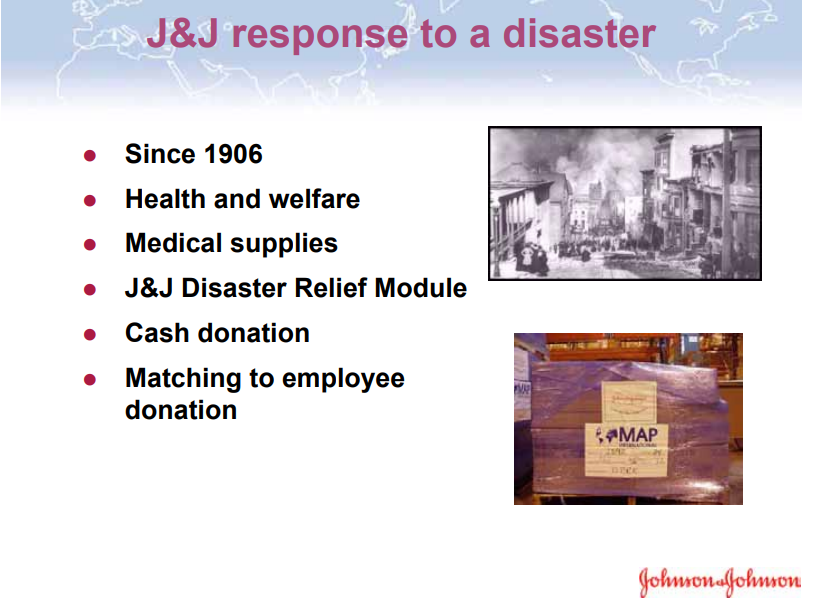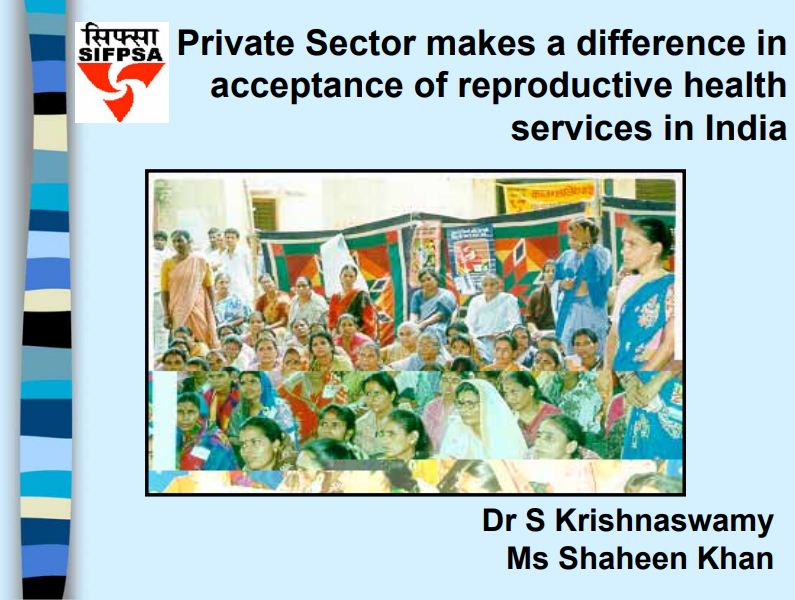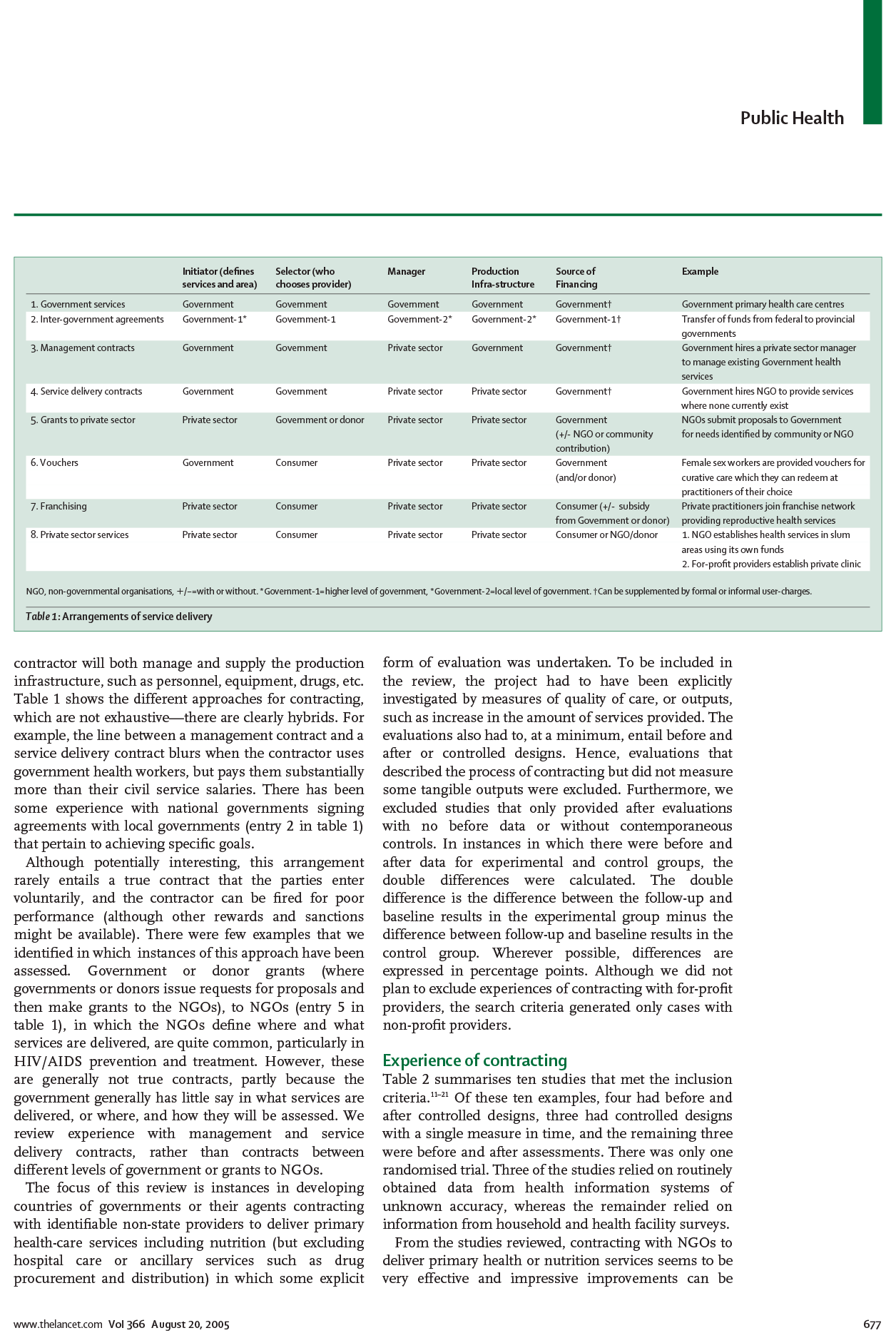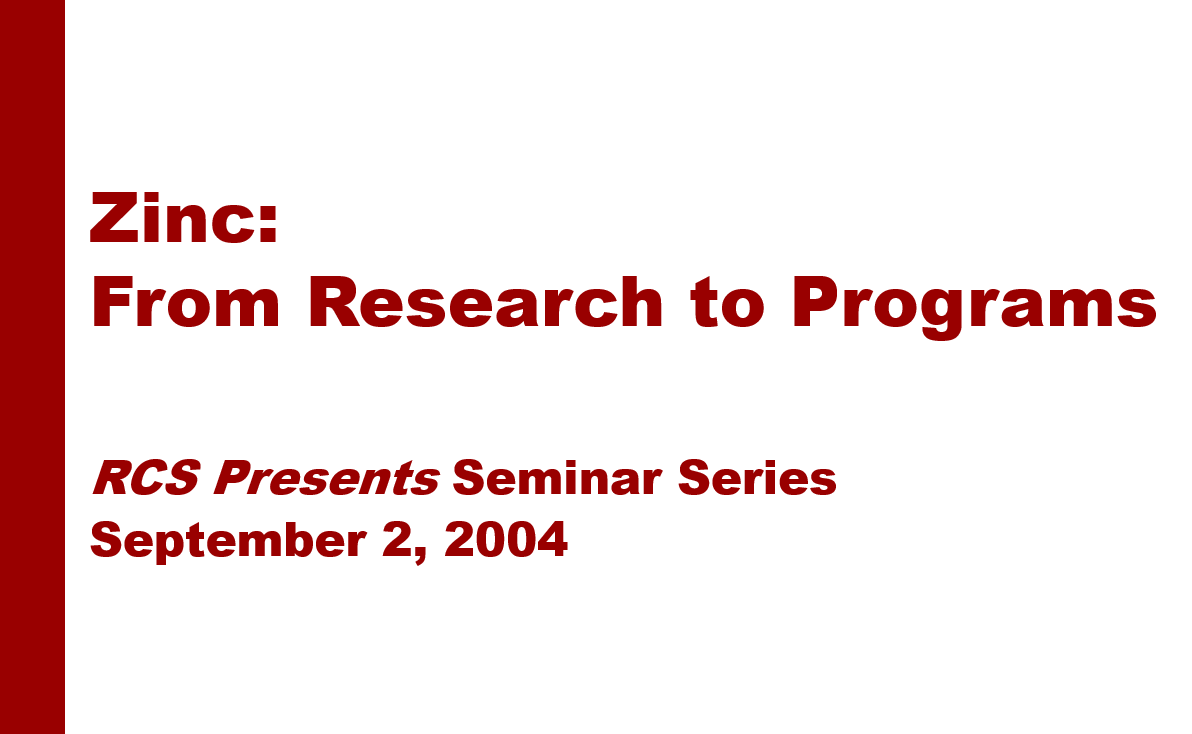
Resource Library
Supporting NGOs Globally to Promote Women's and Children's Health
PowerPoint presentation from GHC session D2: Tsunami and Beyond: The Private Sector's Role in Disaster Response Collaboration.
Resource Type : Presentation
Country : India, Indonesia
Year : 2006-06-26T12:00:00
Language : English
Project : SHOPS

Resource Library
Private Sector makes a difference in acceptance of reproductive health services in India
PowerPoint presentation from GHC session A3: The Future Is Here: Private Sector Contracting in Low-Income Countries.
Resource Type : Presentation
Country : India
Year : 2006-06-26T11:30:00
Language : English
Project : SHOPS

Resource Library
3rd International Zinc Conference (24-25 April 2006): Recent Advances in Scaling up Zinc
This web link will take the reader to the ICDDRB website and access to all presentations from the meeting where lessons learned were shared from India, Nepal, Cambodia, Indonesia, East Timor, Pakistan and Uganda. Important recent research findings that have emerged over the past year and usage and effectiveness of zinc treatment in emergency settings were also highlighted.
Resource Type : Other
Country :
Year : 2006-04-24T10:00:00
Language :
Project : SHOPS

Resource Library
The Impact of Private Clinic Networks on Client Service Access and Quality: Evidence from Ethiopia, India and Pakistan
PowerPoint presentation from PSP-One's GHC Expert Panel: Expanding Health Service Access, Quality, and Equity in Developing Countries: The Role of the Private Sector.
Resource Type : Presentation
Country : Ethiopia, India, Pakistan
Year : 2006-06-09T14:30:00
Language : English
Project : SHOPS

Resource Library
Assessment of India's Locally Manufactured Contraceptive Product Supply
This report, prepared under the aegis of the Private Sector Partnerships-One (PSP-One) project, examines Indian manufacturers of generic versions of hormonal contraceptives (oral contraceptive pills, emergency contraception, and injectable contraceptives) and intrauterine devices. The principal question this report addresses is whether Indian manufacturers of contraceptive products are in a position to serve as a main source of contraceptives for the domestic and regional markets in a commercially viable manner. Brands multinational corporations produce and market dominate the high-end market in India, while free and subsidized products the government and social-marketing organizations underwrite occupy the low-end. This assessment finds that Indian manufacturers have the capacity to supply middle-and low-end markets with affordable, quality contraceptives. These manufacturers, however, face two significant problems: a lack of marketing and distribution capability, and the difficulty and risk involved in approaching new markets, domestically and internationally. The report draws on existing technical information and market research, but is based primarily on interviews conducted with manufacturers and people involved in promoting and distributing contraceptives in India.
Resource Type : Report
Country : India
Year : 2006-01-01T15:00:00
Language : English
Project : SHOPS

Resource Library
Indo-U.S. Corporate Fund for HIV/AIDS Brochure
The United States and India have agreed to establish an innovative HIV/AIDS corporate initiative - the Indo-U.S Corporate Fund for HIV/AIDS. This fund aims to catalyze private sector engagement and mobilize resources to expand and strengthen India's response to HIV/AIDS.
Resource Type : Brochure/Postcard
Country : India
Year : 2006-03-03T11:00:00
Language : English
Project : SHOPS

Resource Library

PSI Safe Water Treatment, Products and Services
Describes PSI's work in safe water systems and household based water treatment, focusing on projects in Zambia, India, Madagascar, Tanzania and Afghanistan. An excellent summary on the need for home-based water treatment systems and products available to treat diarrhea causing agents.
Resource Type : Webinar
Country : Afghanistan, India, Madagascar, Tanzania, Zambia
Year : 2005-01-01T14:30:00
Language :
Project : SHOPS

Resource Library
Disinfecting Water, Saving Lives
A profile of point-of-use safe water products to prevent diarrhea and improve family health. Describes Safe Water Solution (SWS) and PuR, Purifier of Water and highlights PSI point-of-use water programs in 7 countries.
Resource Type : Brochure/Postcard
Country : Haiti, India, Kenya, Madagascar, Malawi, Tanzania, Zambia
Year : 2005-10-01T12:00:00
Language :
Project : SHOPS

Resource Library
Buying Results? Contracting for Health Service Delivery in Developing Countries
To achieve the health-related Millennium Development Goals, the delivery of health services will need to improve. Contracting with non-state entities, including non-governmental organizations (NGOs), has been proposed as a means for improving health care delivery, and the global experience with such contracts is reviewed here. The ten investigated examples indicate that contracting for the delivery of primary care can be very effective and that improvements can be rapid. These results were achieved in various settings and services. Many of the anticipated difficulties with contracting were either not observed in practice or did not compromise contracting effectiveness. Seven of the nine cases with sufficient experience (greater than 3 years' elapsed experience) have been sustained and expanded. Provision of a package of basic services by contractors costs between roughly US$3 and US$6 per head per year in low-income countries. Contracting for health service delivery should be expanded and future efforts must include rigorous evaluations.
Resource Type : Report
Country : Bangladesh, Bolivia, Cambodia, Guatemala, Haiti, India, Madagascar, Pakistan
Year : 2005-08-20T14:15:00
Language : English
Project : SHOPS

Resource Library
Zinc: From Research to Programs
This powerpoint presentation provides an overview of zinc deficiency, research undertaken over the last few years on zinc supplementation to address diarrheal disease in children under five, and the status of program implementation.
Resource Type : Presentation
Country : Bangladesh, India, Indonesia, Nepal
Year : 2004-09-01T15:45:00
Language : English
Project : SHOPS
Pagination
- Previous page
- Page 15
- Next page










